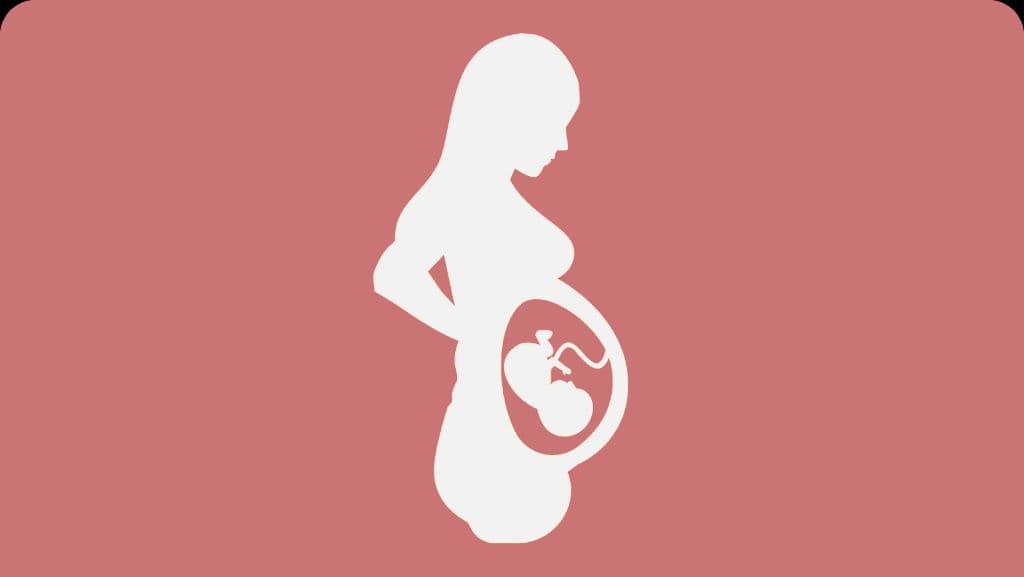What is infertility?
A couple 35 or under should consider seeking help for infertility when they have been trying to get pregnant for a year despite having unprotected sex. If you are between 35-40 years of age and are unable to conceive after 6 months, it is advised to visit your doctor. If you are above the age of 40 and are planning to get pregnant, it is recommended to reach out to your doctor immediately.
What are the conditions that indicate an immediate visit to your doctor?
You or your partner are recommended to visit your doctor if you suffer from one or more of the following conditions. You need not wait for 6-12 months and can visit the doctor as soon as you plan for a child.
In women -
- Irregular or painful periods
- A history of PID (Pelvic inflammatory disease)
- History of cancer
- History of any hormonal imbalance
- Difficulty while having sex
- Endometriosis (A disorder in which the tissue that lines the uterus starts to grow outside the uterus)
- Any history of infertility in your family
In men -
- Small-sized testicles
- Swelling in the scrotum
- Difficulty while having sex
- A familial history of infertility
- History of any disease related to the testes or the prostate gland
- History of cancer
- Low or abnormal sperm count

What are the causes of infertility?
A couple may be struggling to conceive either due to biological conditions in one or both partners. In women, the causes for infertility may be related to the ovaries, tubes, uterus or endocrine system.
In the ovaries
- PCOS - Polycystic Ovarian Syndrome is a hormonal imbalance that affects 1 in 5 young women of the reproductive age group. This is characterized by irregular ovulation that may cause problems while conceiving. Some symptoms to watch out for:
- Irregular periods, increased facial hair, acne, hair fall and polycystic ovaries on ultrasound amongst others
- Premature ovarian failure - This condition occurs when the ovaries stop functioning normally before the age of 40. When this happens, your ovaries don’t produce normal amounts of the hormones estrogen and progesterone or may not release eggs regularly. This condition often leads to infertility.
- Presence of small ovaries by birth
In the tubes
- Any kind of blockage in the tubes is usually due to STI's (sexually transmitted infections ), tuberculosis or endometriosis. When this happens, the egg is unable to reach the uterus and hence, the woman is unable to conceive.
In the uterus
- Presence of an abnormally shaped uterus - This may be an abnormal shape of the uterus by birth or separation in the uterus which alters the shape of the cavity in the uterus.
- Fibroids or polyps - These non-cancerous growths in the uterus disrupt the environment in the uterus and may cause problems when you are trying to conceive.
In the endocrine system
- Thyroid disease - Thyroid disease, which could be hypothyroidism or hyperthyroidism, is a general medical condition that prevents your thyroids from producing the right amount of hormones. This condition may cause problems when trying to conceive.
- Hormonal imbalances in the pituitary gland and the hypothalamus including excess production of the hormone prolactin.
In men, the causes for infertility may be due to a variety of factors as listed.
- Sexual problems - Premature ejaculation, trouble with erection
- Structural problems with the testes
- History of damage/injury to the reproductive organ
- Blockage in the ducts that carry the sperms
- Abnormal sperm count - The average sperm count is 15-20 million per ml. If the count is lesser, there may be troubles while conceiving.
- Low motility of sperms - In this condition, the sperms aren't active enough to move.
- Long periods of exposure to high temperatures, pesticides, herbicides or heavy metals
- Hormonal imbalances
- Undescended testes
- Varicose veins
- Some auto-immune disorders
- Medications - Drugs prescribed for rheumatoid arthritis, ulcerative colitis, tricyclic antidepressants, high blood pressure when taken for long periods of time may affect the sperms. Anabolic steroids usually taken by sportsmen to increase their performance may also lead to infertility.
Other causes of infertility in both partners
- Medical disorders - Diabetes, Cushing's syndrome (a disorder that occurs when your body produces too much of the hormone cortisol over a long period of time),
- Harmful lifestyle factors like smoking, consumption of alcohol, consumption of recreational drugs like marijuana and cocaine if done excessively increase the risk of infertility.
- High levels of stress and obesity can increase the risk of infertility.
- Certain medications are taken for cancer
What are the tests that are done to check for infertility?
Your doctor may advise certain tests based on your condition and suggest a treatment plan accordingly.
- Hormonal evaluation - Some blood tests are done to check for hormone levels related to this.
- Ultrasound - An ultrasound is then done to check the condition of the reproductive system
- HSG - An hysterosalpingogram (HSG) is an x-ray procedure used to check if the fallopian tubes are open and if the inside of the uterus is normal
- Blood sugar - The levels of your blood sugar may also be checked via a blood test.
- In some cases, a hysterectomy and laparoscopy may be advised
- For men, blood tests are done to check for hormone levels and blood sugar levels. A semen analysis is also done.
What are the treatment options?
Your treatment plan for infertility involves taking care of both your physical and mental health.
During the course of your treatment, you may experience some unpleasant side effects. What’s more, the vigilance required while taking them, the regular trips to the doctor coupled with blood work and scans and the shared disappointment that you may face tends to take a toll on your mental health. Always remember that infertility is not your or your partner's fault. It is important to talk to your partner about what each of you is feeling. It is also advised to consider visiting an infertility counsellor who is specially trained to guide couples undergoing these treatments.
The following are some treatment options your doctor may recommend
First, a thorough evaluation of your hormone levels is done. If there is an imbalance, you may be put on a hormone treatment plan where hormone supplements may be prescribed to you.
In women, if there are problems with ovulation, certain drugs are prescribed and your progress will be monitored regularly. Once the egg is released you may be asked to attempt conception then. In cases of infections and blockages in the tube that cannot be treated by surgery, you may be recommended to directly opt for IVF treatment. In men, where the sperm count and sperm motility are low, or if there are difficulties while having sex, an IUI (Intrauterine insemination) may be recommended. In IUI, the semen is collected and the best sperms are picked out. Then, they are injected directly into the uterus of the woman at the time of her ovulation. If all the previous treatments fail, an IVF (in vitro fertilization) may be recommended. In this method, the egg and sperm are combined outside the body. The process involves monitoring and stimulating your ovulatory process, removing an ovum/ova from the ovaries and letting sperm fertilise them in a culture medium in a lab. On the fifth day, it is injected into the uterus, after which your baby starts developing. One entire cycle of IVF takes about 3 weeks whereas sometimes, these steps may be split into different parts and could take longer.
Small things you can do to maintain your reproductive health
To keep your reproductive system healthy, you can start by making the right choices for overall good health.
- Eat a balanced diet and drink plenty of water
- Exercise regularly to try and maintain a healthy weight
- Get enough sleep
- Try and avoid the consumption of tobacco, alcohol and other drugs
- Manage stress in healthy ways
- Keep your genitals clean. Try and not to use too many female hygiene products as they can cause more harm than good.
- Practise safe sex
- If you use tampons, be sure to change them every 4-6 hours.
- Regular checkups with your doctor
Conclusion
Infertility may be caused due to several reasons and it is important to know when to visit your doctor. If you’re planning for pregnancy, do visit your doctor as they can help you with the next phase of your pregnancy plan. It is important to remember that infertility is not your or your partner's fault and a healthy discussion is always encouraged. There are several treatment options through which infertility can be treated.
Disclaimer: This information is educational and should not be construed as medical advice. Please consult your doctor before making any dietary changes or adding supplements.
Proactive For Her is a digital clinic for women, offering accessible, personalised, and confidential healthcare solutions. We offer out-patient care, diagnostic services and programs for various health concerns of Indian women, across their lifetime - from puberty to pregnancy to menopause.

